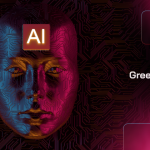Ethical and governance concerns are essential as AI becomes central to healthcare, finance, and daily life. Strong AI ethics protect users, foster trust, and mitigate risks.
This article explores the key principles and frameworks shaping responsible AI use worldwide.
Why AI Ethics and Governance Matter
Without responsible frameworks, AI can lead to unintended societal harm. Here’s why ethical AI governance is essential:
- Ethical AI respects privacy and prevents misuse of personal data, protecting user rights in a digital world.
- Governance helps ensure AI doesn’t reinforce harmful biases. It promotes fairness in its applications.
- Transparent and accountable AI builds confidence, making users more comfortable with AI-driven decisions.
- By setting ethical boundaries, governance allows innovation to thrive without compromising societal values.
- Ethical frameworks guide AI development to align it with human values. They anticipate challenges as technology advances.
Key Ethical Principles in AI
Ethical AI requires adherence to foundational principles that guide responsible design and deployment. Here’s how each principle directs AI development:
- Privacy. Ensures AI systems only collect necessary data and protect user information. It should also comply with strict data protection standards.
- Accountability. Establishes clear responsibility for AI outcomes. Developers and organizations are required to address and correct errors or unintended consequences.
- Non-Maleficence. AI systems should not cause harm. They must prioritize user safety in all ways: physical, mental, and economic.
- Beneficence. It drives AI to benefit society. It also ensures systems improve well-being and support the public.
AI Governance
AI governance ensures responsible development, deployment, and use of artificial intelligence. Effective governance includes policies, standards, and practices that protect ethical AI and foster innovation. Here’s how governance works at different levels:
Policy Development
Policies set the rules for safe AI use. Governments create guidelines on data privacy and transparency. They aim to protect individual rights and set limits for AI developers. As AI advances, policies must be updated to stay relevant.
International Standards
Since AI is global, international bodies like the OECD and ISO work to create unified standards. These standards promote fairness, accountability, and privacy and help countries and companies align AI practices. Global standards build consistency, trust, and cooperation in AI.
Industry Self-Regulation
Many tech companies set their own ethical guidelines. These include ethical committees, audits, and transparency reports. By self-regulating, companies show accountability, build user trust, and set high standards for AI ethics.
Types of Legal Challenges
AI technology presents unique legal challenges that can impact developers and users. Here are some of the critical legal issues in AI:
Accountability for Autonomous AI Decisions
When AI systems make decisions independently, assigning accountability becomes complex. In cases where AI actions cause harm, it’s unclear who is liable: the developer, the user, or the AI. Resolving this requires updated legal frameworks that define accountability for autonomous AI behavior.
Intellectual Property Rights
AI’s ability to generate original content and solutions raises questions about intellectual property ownership. For instance, who owns a piece of art or code generated by an AI model? Current laws aren’t fully equipped to handle AI-generated creations, and new frameworks may also be needed to address ownership rights for AI-driven work.
Data Privacy
AI systems rely on large datasets, often containing sensitive personal information. Ensuring that AI applications comply with privacy laws, like GDPR and CCPA, is essential. However, balancing the need for data to train AI models with protecting user privacy is a significant challenge. It demands careful consideration of data protection standards.
Bias and Discrimination
AI algorithms trained on biased data can perpetuate and amplify discrimination. Legal challenges arise when AI systems inadvertently reinforce societal biases. This is common in areas like hiring, lending, and law enforcement. Ensuring that AI is fair and unbiased is a complex but essential goal requiring ethical and legal oversight.
Security Risks
AI-driven technologies, like autonomous weapons or deepfakes, pose new security threats. Legal frameworks must address the misuse of AI for malicious purposes and ensure regulations are in place to minimize risks associated with these technologies.
Best Practices for Navigating AI Ethics and Governance
Organizations can adopt best practices to address AI’s ethical and legal challenges. These steps align AI with ethical standards and regulatory needs:
1. Establish an Internal Ethics Board
Forming an ethics board brings diverse views to oversee AI projects. The board reviews initiatives, offers recommendations, and addresses ethical concerns early. Regular reviews maintain accountability and transparency.
2. Conduct Regular Algorithm Audits
Auditing algorithms help find and correct biases, errors, or unintended outcomes. These audits ensure algorithms are fair and accurate and reduce the risk of harmful AI.
3. Consult Legal Resources
Using resources like Lawrina keeps organizations updated on AI regulations. Consulting legal frameworks ensures AI meets privacy laws and accountability standards. This reduces legal risks.
4. Implement Data Privacy and Security Protocols
Strong data privacy and security protocols protect user data. They ensure compliance with regulations like GDPR and CCPA. Safeguarding data builds user trust.
5. Foster Transparency
Clear communication about AI systems builds trust. It should cover how they work, the data they use, and their decision factors. Access to documentation and transparency reports promotes openness.
6. Prioritize Fairness
Design AI systems to minimize bias. Use diverse datasets and avoid discriminatory factors. Additionally, test algorithms for fairness to support equitable outcomes.
7. Engage in Industry Collaboration
Joining AI ethics groups and forums helps organizations learn best practices. Collaboration supports knowledge sharing and a unified approach to ethical AI use.
Regulatory Challenges: Global vs. Local Approaches
AI regulation varies by region, with countries balancing user protection and innovation. Differences in priorities impact AI governance and the alignment of global standards.
Here’s how key regions approach AI regulation:
European Union: Privacy-First Approach
The EU emphasizes privacy and data protection with strict rules like the General Data Protection Regulation (GDPR). The proposed AI Act classifies AI by risk level, applying stricter regulations to high-risk sectors like healthcare. This privacy-focused approach prioritizes user rights and ethical standards.
United States: Innovation-Focused Approach
The U.S. favors AI innovation with limited federal regulations. While industry-specific rules exist (e.g., HIPAA for healthcare), the U.S. largely relies on self-regulation. States like California have privacy laws such as the California Consumer Privacy Act (CCPA). However, federal oversight is minimal, raising concerns over consistent data protection.
China: State-Controlled and Security-Oriented
China prioritizes state control and national security in AI regulation. Government policies promote AI development while enforcing strict data and security standards. Recent laws, like the guidelines on recommendation algorithms, support state objectives and technological leadership.
Global Standards: Striving for Harmonization
Organizations like the OECD and UNESCO aim to create global AI ethics and transparency standards. Aligning regional priorities remains challenging as countries balance ethical AI with economic interests.
Case Studies of Ethical and Legal Challenges in AI
Real-world AI applications bring complex ethical and legal issues. These cases highlight how AI governance is essential across different sectors.
1. Facial Recognition in Law Enforcement
Facial recognition is used in law enforcement to identify suspects. However, it has raised concerns over racial bias and inaccuracies. Studies show higher misidentification rates for people of color, leading to wrongful arrests and eroding public trust. Cities like San Francisco and Boston have banned its use in policing. This case underscores the need for fairness and transparency in AI.
2. Autonomous Vehicles and Liability
Autonomous vehicles (AVs) aim to reduce human error in transportation. However, determining liability in AV accidents is a challenge. In 2018, an Uber AV was involved in a fatal crash, sparking debates over accountability—was it the vehicle’s AI, the manufacturer, or the safety driver? This case shows the need for clear liability regulations in AVs.
3. AI in Hiring: Bias in Algorithms
AI hiring tools streamline recruitment, but some reinforce biases. An AI recruiting tool used by Amazon favored male candidates due to biased training data. This case highlights the risk of AI replicating societal biases. It also raises concerns about fairness and equality in hiring.
4. Deepfakes and Misinformation
Deepfake technology creates highly realistic fake videos, raising concerns about misinformation and harm. Deepfakes have been used to impersonate public figures, spread false information, and manipulate opinions. This technology blurs the line between reality and fiction. This poses challenges for regulation and enforcement.
The Future of AI: Ethics, Law, and Governance
Laws and policies must adapt quickly as AI evolves. This means ongoing monitoring, revisiting legal standards, and updating governance.
Sector-specific rules will also be needed as AI spreads across fields such as healthcare, finance, and more. New areas like quantum computing add further complexity, bringing new ethical and legal challenges.
Effective AI governance requires adaptability, foresight, and a commitment to continuous learning. This approach will help shape an AI future that benefits humanity responsibly.
Conclusion
As AI transforms our world, ethical governance is crucial to ensure its benefits benefit everyone. Building fair, accountable, and transparent AI requires collaboration between developers, policymakers, and users.
Stay informed on AI ethics, follow thought leaders, and join discussions to support a responsible AI future. Advocate for ethical AI policies, back organizations prioritizing these values, and share insights. Together, we can shape AI to serve humanity responsibly.



















